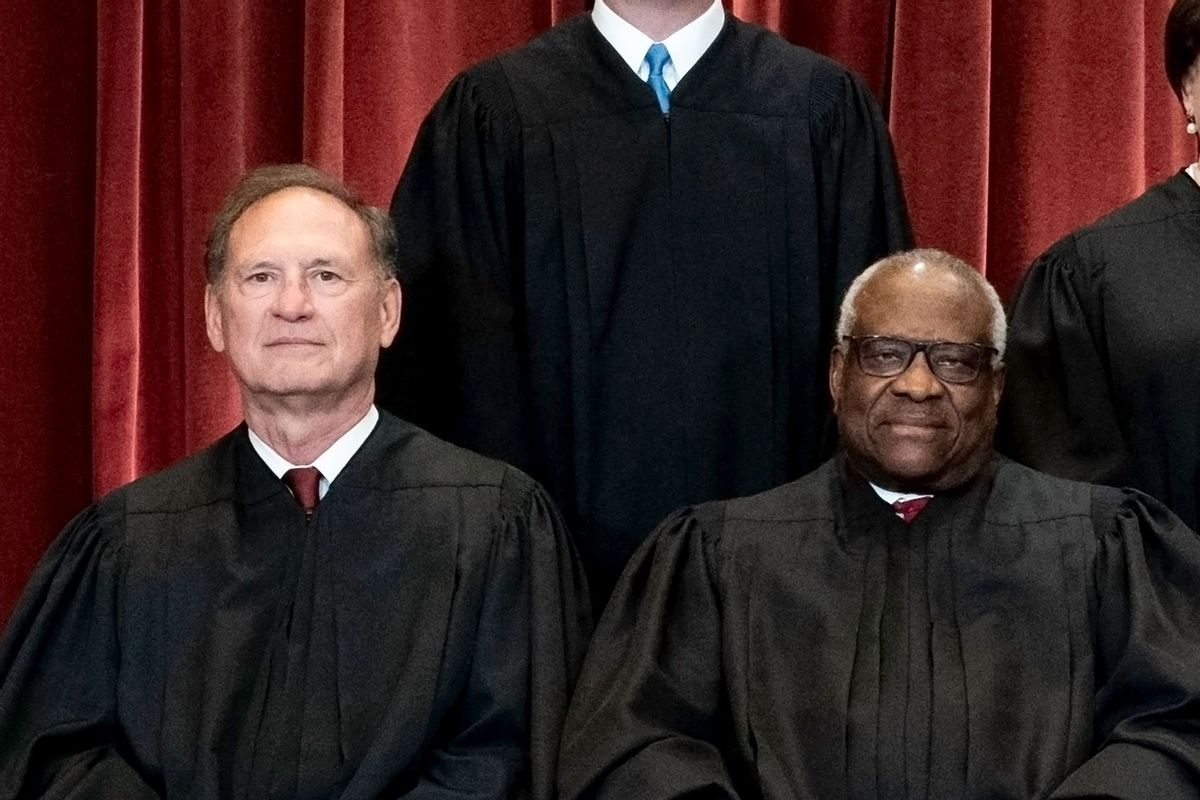In a 6-3 vote that fell cleanly along ideological lines, the Supreme Court reversed a lower court's ruling that GOP lawmakers in South Carolina improperly used race to give Republicans a representational advantage in the state's U.S. House delegation, per CBS News. The court's right-wing majority accepted Republicans' arguments that politics, not race, was the predominant factor in their map-making process.
The case centered on a 2022 congressional map drawn by the Republican-led state legislature that packed 30,000 Black residents from the state's first congressional district to its sixth congressional district, which was already a Black-majority district. The shift meant that the first, previously red-tinted district would become more solidly Republican. The lower court had termed this a "stark racial gerrymander."
Justice Samuel Alito penned the majority opinion, which found the lower court's decision "clearly erroneous" and asserted that, in a state where race and politics "closely correlate," there was no direct evidence of a racial gerrymander.
"The fact of the matter is that politics pervaded the highly visible map-making process from start to finish," Alito wrote.
In its lawsuit, the South Carolina NAACP alleged that Republicans had set a cap of 17 percent Black voters in the first congressional district. But the court's majority dismissed the figure as a "side effect of the legislature's partisan goal." Justice Elena Kagan, joined by Justices Sonia Sotomayor and Kentaji Brown-Jackson, disagreed.
"It will be easy enough" for bad actors to "cover their tracks in the end: just raise the 'possibility' of non-race-based decision making, and it will be 'dispositive,'" Kagan wrote in her dissent. "And so this 'odious' practice of sorting citizens, built on racial generalizations and exploiting racial divisions, will continue."
The decision, Kagan argued, was a sanction for lawmakers to further disenfranchise voters of color. But Justice Clarence Thomas, who concurred with Alito, suggested that racial gerrymandering claims should not be taken up by courts at all. Targeting Brown v. Board of Education, the case that helped end racial segregation in the 1950s and 1960s, Thomas wrote that in that instance, the Supreme Court took a "boundless view of equitable remedies" through "extravagant uses of judicial power."
The court, he concluded, should not make the same mistake again.

Shares